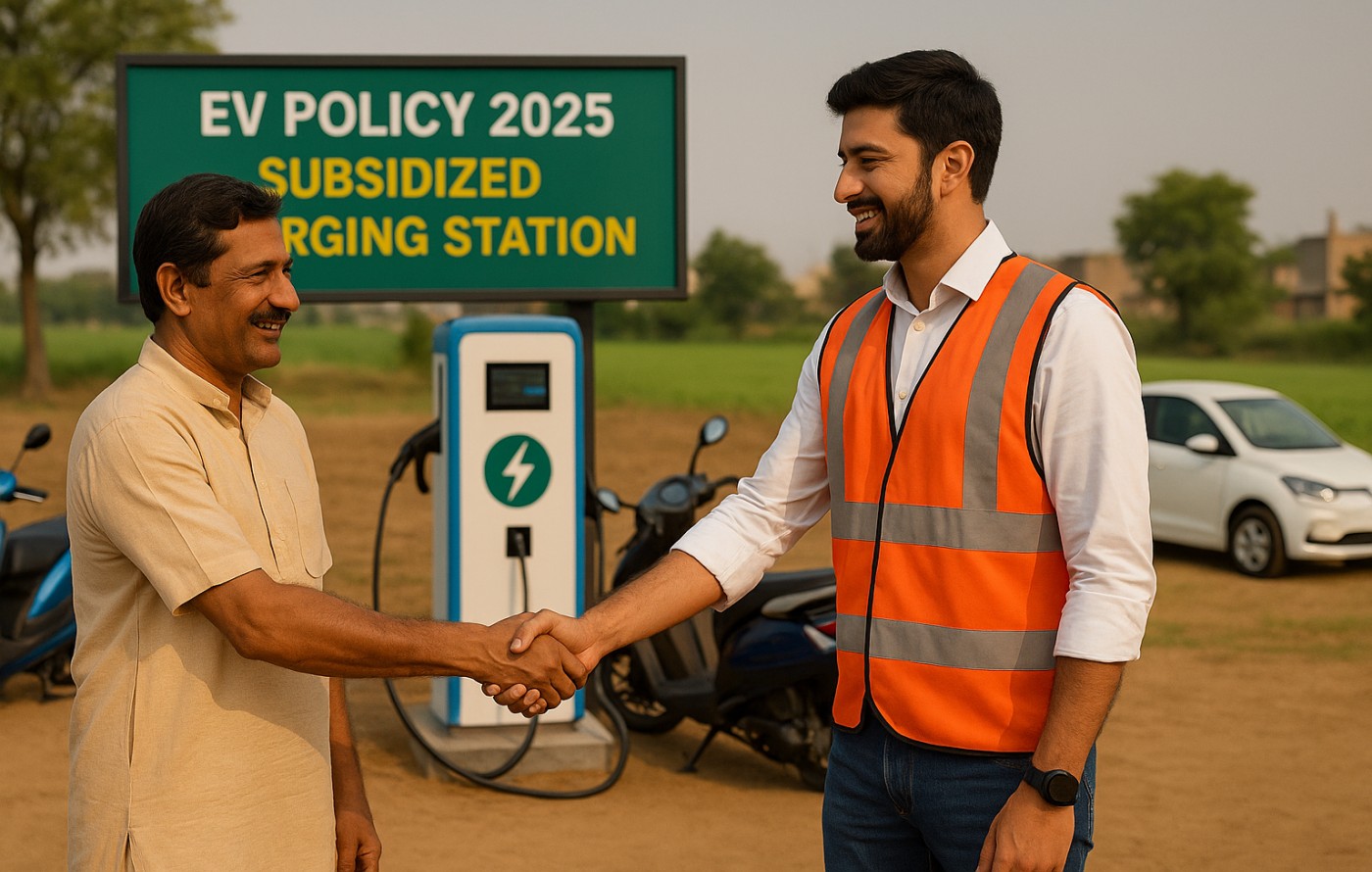
How the New EV Policy 2025 Impacts Landowners & Entrepreneurs
- By SDC EV
India is charging forward in its journey toward clean mobility, and the Electric Vehicle (EV) Policy 2025 is the latest, most ambitious roadmap to date. While the headlines talk about subsidies for manufacturers and tax exemptions for buyers, a quieter but powerful story is unfolding behind the scenes.
For landowners and entrepreneurs, this policy is a goldmine of opportunity.
From setting up public charging stations to leasing land to energy companies, the new policy has opened the doors wide for grassroots participation in India’s electric future.
A Quick Breakdown of EV Policy 2025
The updated policy, announced earlier this year, includes:
Capital subsidies for charging station installation
Reduced electricity tariffs for EV infrastructure
Interest subvention schemes for small businesses
Incentives for land leasing and private land utilization
Ease of licensing and single-window clearance systems
In short, the government is creating an ecosystem where private participation is not just encouraged—it’s essential.
Landowners: Monetize Your Land the Smart Way
If you own land near highways, in urban areas, or even in semi-rural pockets with rising EV demand, the policy allows you to:
✅ Lease Land to Charging Operators
EV charging companies are aggressively expanding into Tier 2 and Tier 3 cities. The policy offers fast-track approvals and fiscal incentives for land leased for charging or battery-swapping stations.
You could earn passive income by:
Leasing land on a per-sq.ft or revenue-sharing model
Partnering with OEMs or private energy companies
Allowing solar EV stations on rooftops or vacant spaces
✅ Convert Land into a Micro Charging Hub
With capital subsidy schemes of up to 25% of infrastructure cost (capped at a fixed value), even a small plot can become a mini charging zone for scooters, e-rickshaws, or delivery fleets.
Think: highways, petrol pumps, colleges, shopping complexes — all prime real estate for EV charging.
Entrepreneurs: A Market Ripe for Disruption
The EV Policy 2025 has been designed to remove traditional entry barriers for first-time entrepreneurs in the green tech space. Some of the most exciting business models to explore:
1. EV Charging Station Ownership
With simplified licensing and up to 50% GST reimbursement in select states, setting up an EV station is no longer a capital-heavy game. The policy ensures:
Priority grid connectivity
Dedicated EV feeder lines
Financial support from state EV development funds
You can partner with existing Charge Point Operators (CPOs) or build your own network.
2. Battery Swapping & Subscription Services
The policy supports battery-as-a-service (BaaS) models. Entrepreneurs can now invest in:
Swapping kiosks for two/three-wheelers
Fleet energy management services
Subscription-based battery packs for last-mile operators
3. Value-Added Services Around Charging
Once a station is built, monetization doesn’t stop at power. The policy encourages co-located services like:
EV cafes or lounges
Repair and maintenance zones
EV test ride/demo zones
Financial Boosts Built In
What makes EV Policy 2025 especially entrepreneur-friendly is the array of financial sweeteners baked into it:
Interest subvention of up to 5% on loans for EV infrastructure projects
Reimbursement of electricity duty for five years
Up to 100% stamp duty waiver on land used for EV-related purposes
Tax rebates on EV-related revenue under MSME classification
This is policy-driven profitability, and it’s happening in real time.
Why This Matters — Beyond Business
India’s goal is to have 30% of vehicles electric by 2030. That cannot happen without:
A wide charging network
Local business involvement
Rural and suburban expansion
The EV Policy 2025 puts these priorities at the core, and in doing so, it transforms ordinary landowners and small entrepreneurs into key stakeholders in a national clean energy movement.
Final Charge: A Call to Plug In
Whether you own a plot of land in a growing city or have been waiting for the right moment to start your own green venture, EV Policy 2025 has arrived at just the right time.
The transition to electric isn’t just about vehicles — it’s about the infrastructure, the people, and the partnerships that make it possible. And now, you can be part of it.
Because the future isn’t just electric — it’s inclusive, local, and full of opportunity.
